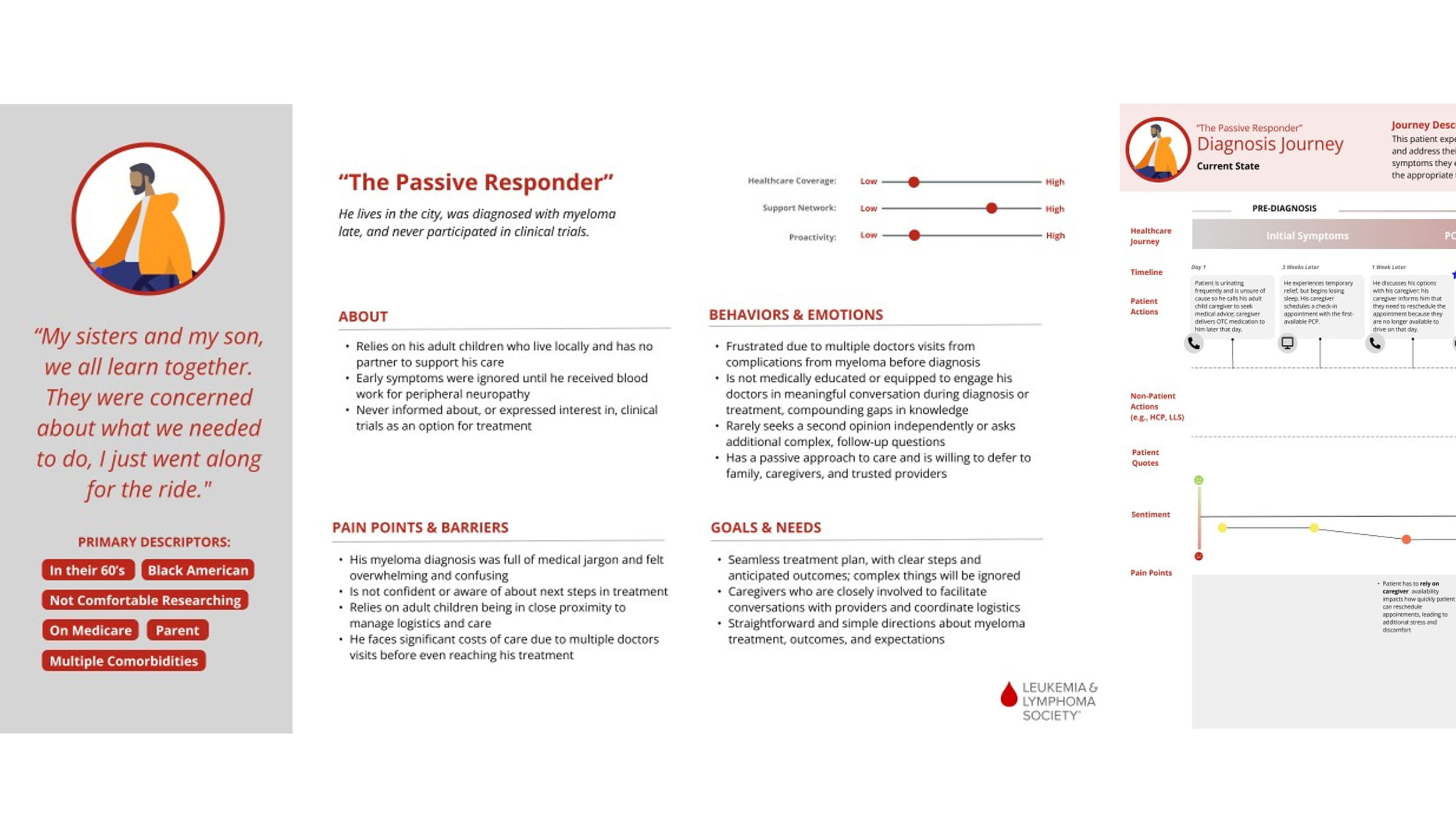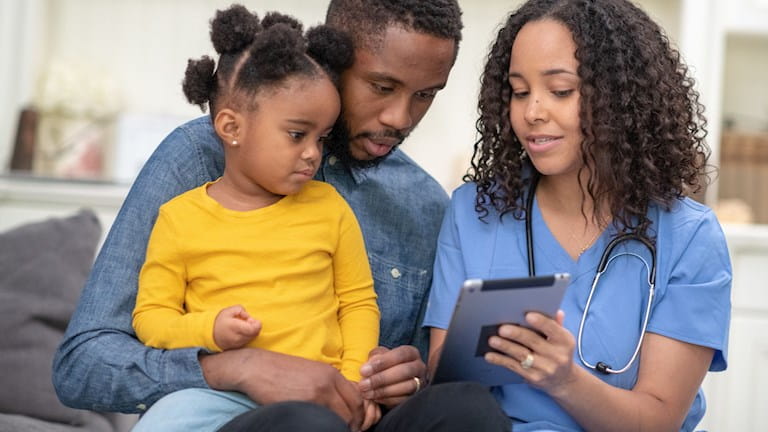Leukemia Lymphoma Society
Improving the Black Multiple Myeloma patient experience with the Leukemia Lymphoma Society
.png?mw=720&mh=720&iar=0&as=1&hash=E3324E1A858E9C7C01003E8AA447C03D)
Our Impact
West Monroe partnered with the Leukemia & Lymphoma Society (LLS)—a leading non-profit organization focused on reducing the morbidity and mortality of blood cancers—to expand the previously created Myeloma Link in the Mid-Atlantic region. This allowed for a deep understanding of how LLS and Myeloma Link can enhance patient outreach, drive earlier diagnosis among Black patients, enable partner healthcare providers (HCPs) and community partners to spread awareness and education, as well as encourage increased participation of Black patients in clinical trials. We provided actionable recommendations for LLS’s Myeloma Link program to better engage with Black communities and improve patient outcomes and overall health equity.
21
interviews to ID 23 key pain points across patients, stakeholders, healthcare professionals, and community partners
3
patient personas and journey maps created to guide strategies
6
recommended projects and strategies for improvement
The Full Story
The Challenge
Myeloma Link offers a wealth of myeloma education and resources, but the Leukemia Lymphoma Society faced challenges in effectively reaching patients and caregivers—particularly within the Black populations of the Mid-Atlantic region. They aimed to explore successful activities within the organization and develop new initiatives to enhance the effectiveness of Myeloma Link—spurred by four key questions:
- How can LLS and Myeloma Link enhance its patient outreach strategy and execution?
- How can LLS and Myeloma Link better drive earlier diagnosis, particularly among Black Americans in the Mid-Atlantic region?
- How can LLS and Myeloma Link better enable partner HCPs and community partners to spread awareness, education, and enhanced engagement within the Mid-Atlantic region?
- How can LLS encourage and increase the number of Black Americans participating in clinical trials in the Mid-Atlantic region?
These challenges required a deep understanding of the organization’s current state, patient pain points, and an expertise delivering data-driven strategies to overcome them.
An Undeniably Different Approach
West Monroe took a human-centered design approach to understanding and contextualizing the current state experiences of patients, LLS employees, HCPs, and community partners. We were able to understand the current-state journey and pain points for these main stakeholders by conducting user research and stakeholder interviews to gather insights on patient pain points, organizational gaps, and barriers to partnerships with HCPs and community partners.
We translated our findings into patient personas and journey maps: clear, visual walkthroughs of the patient journey with callouts on major pain points, “moments that matter,” and patient sentiments grouped by patient demographics.
We were successful because we brought a multidisciplinary team that combined a digital product mindset with deep healthcare and patient services expertise. By merging the capabilities of our multidisciplinary teams, we generated in-depth answers to LLS’s four key questions and delivered a comprehensive set of short-, medium-, and long-term recommendations for LLS.
We emphasized the value of digital touchpoints by illustrating user actions through personas and journey maps while also demonstrating the potential of data derived from these touchpoints to enhance current digital experiences or create new ones that address patient needs and improve outcomes.
Project Timeline:
Real Results
By building a deeply researched insights report, West Monroe provided LLS stakeholders with an unvarnished view of their organization, community partners, and the experience of Myeloma patients—enabling them to make organizational decisions with increased confidence. We also developed user experience artifacts, patient-centric personas, and journey maps that tied specific observations and pain points to representative patient journeys. These deliverables helped LLS build deeper empathy with the myeloma patient journey and provided a clear picture of the efficacy of their current programs.
West Monroe delivered three recommended projects for LLS to make the biggest impact in the short to medium term, focused on breaking down barriers to internal collaboration, assessing and enhancing existing programs and services, and optimizing the digital website experience. We also provided three long-term strategies for improving brand recognition, building new partnerships, and engaging HCPs and caregivers to improve patient outreach and engagement. These strategies align with LLS's broader vision, as the organization is currently undergoing a rebranding initiative set to launch in 2024 to best position it as the world’s leading blood cancer non-profit.
The impact of our recommendations and strategies goes beyond the immediate results to support LLS’s long-term goals of addressing health disparities and improving outcomes for Black myeloma patients—LLS has already begun implementing our recommendations to enhance patient engagement and has reported success.




.png?cx=0.5&cy=0.5&cw=768&ch=432&hash=8B42DD0A359FBFC9443564BC6589F22A)




.png?cx=0.5&cy=0.5&cw=768&ch=432&hash=2BF4381021E6E59145A331C4C1391C0B)


